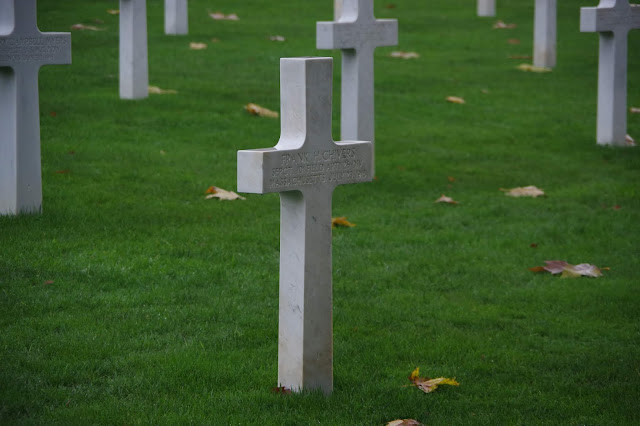Sunday, November 7, 1943. The heroism of Sgt. Thomas, Shoes rationed.
Marine Corps Sgt Herbert J. Thomas displayed heroism on Bougainville that would lead to him being posthumously awarded the Medal of Honor.
SERGEANT HERBERT J. THOMAS
UNITED STATES MARINE CORPS RESERVE
for service as set forth in the following CITATION:
For conspicuous gallantry and intrepidity at the risk of his life above and beyond the call of duty while serving with the Third Marines, Third Marine Division, in action against enemy Japanese forces during the battle at the Koromokina River, Bougainville Island, Solomon Islands, on November 7, 1943. Although several of his men were struck by enemy bullets as he led his squad through dense jungle undergrowth in the face of severe hostile machine gun fire, Sergeant Thomas and his group fearlessly pressed forward into the center of the Japanese position and destroyed the crews of two machine guns by accurate rifle fire and grenades. Discovering a third gun more difficult to approach, he carefully placed his men closely around him in strategic positions from which they were to charge after he had thrown a grenade into the emplacement. When the grenade struck vines and fell back into the midst of the group, Sergeant Thomas deliberately flung himself upon it to smother the explosion, valiantly sacrificing his life for his comrades. Inspired by his selfless action, his men unhesitatingly charged the enemy machine gun and, with fierce determination, killed the crew and several other nearby defenders. The splendid initiative and extremely heroic conduct of Sergeant Thomas in carrying out his prompt decision with full knowledge of his fate reflect great credit upon himself and the United States Naval Service. He gallantly gave his life for his country.
The 25-year-old Thomas had first served, in the war, in the United Stated Army Air Corps before transferring to the Marine Corps.
According to Sarah Sundin's blog, on this day in 1943 shoe rationing commenced in the US. She has an article about it here:
Make It Do – Shoe Rationing in World War II
It's a really interesting article.
The rationing move was announced suddenly, and limited Americans to three pairs of new shoes per year. I'm sure I don't buy a new pair of shoes most years, which makes this limit interesting in context.
The Red Army captured Fastiv near Kyiv.
The Detroit Lions and the New York Giants played a scoreless tie game, the last such game in NFL history.









































































































